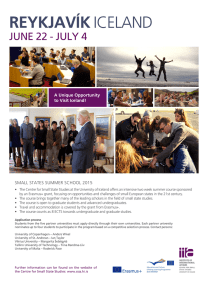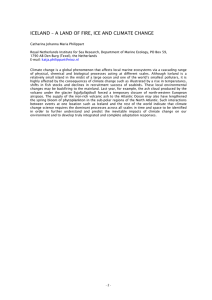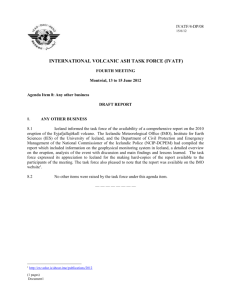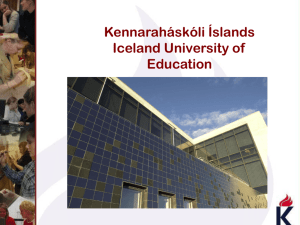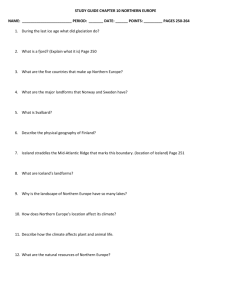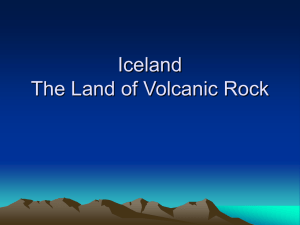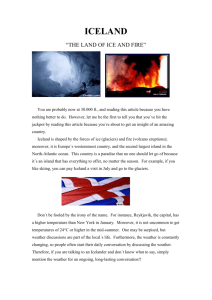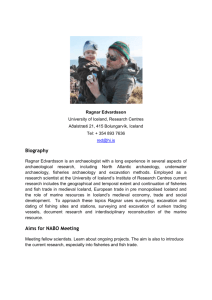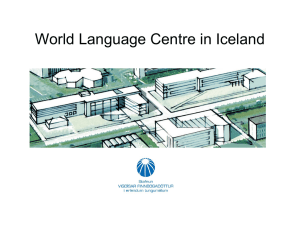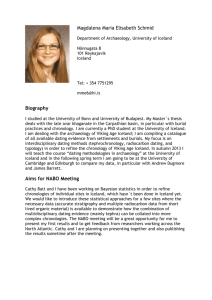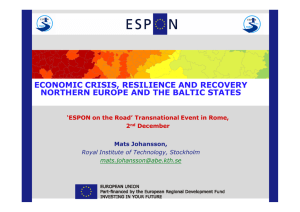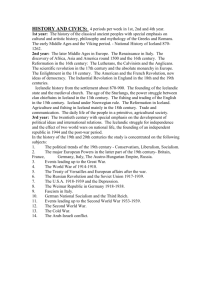Food Security: Alaska vs. Iceland
advertisement
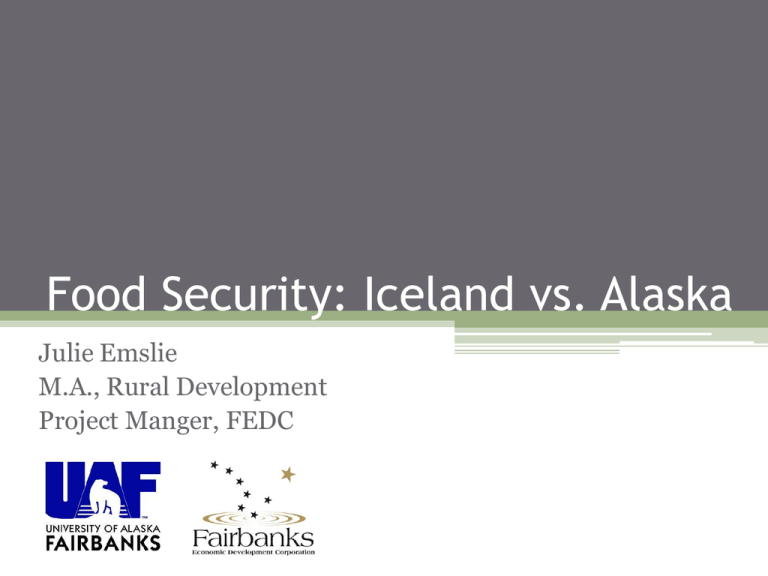
Food Security: Iceland vs. Alaska Julie Emslie M.A., Rural Development Project Manger, FEDC • What is Food Security? • Iceland vs. Alaska • Mechanisms Leading to Iceland’s Level of Food Security What is Food Security? • 3 Pillars ▫ Availability–sufficient quantities of food available on a consistent basis ▫ Access–having sufficient resources to obtain appropriate foods for a nutritious diet ▫ Utilization–appropriate use based on knowledge of basic nutrition and care, as well as adequate water and sanitation STABILITY • Shifting from Conventional (imported) to Integrated (local) Food Systems Food Production and Agriculture in Iceland vs. Alaska • Icelanders produce roughly half of the food they consume. ▫ 100% of meat, fish, dairy, eggs, and 50% of vegetables ▫ Dependent on imports of grain, sugar, fruit, and vegetables • Alaska currently imports 98% of its food. ▫ Despite the large amount of gardening, hunting, fishing, and foraging ▫ Annually, 85% of red meat from hoofed animals imported from outside • Iceland: 3200 farms, roughly 6% of the population • Alaska: 700 farms, roughly .1% of the population Importance of Food Security in Iceland • Government Support • Subsidies • 34%- milk • 44%-sheep • small subsidy- tomatoes, cucumber, and paprika • Import duties • pork, poultry, eggs, flowers, potatoes, and some greenhouse and crop products • Farmer’s Association of Iceland • agricultural advisory service, animal breeding and preservation of national breeds, crop production and rotation, research and innovation, and forestry and soil conservation projects • “Part of our character” ▫ Isolation ▫ Historical Events • Recent Events ▫ Economic Crisis ▫ Volcanic Eruptions
